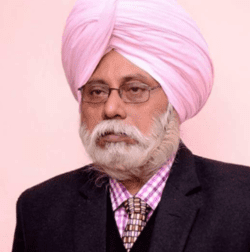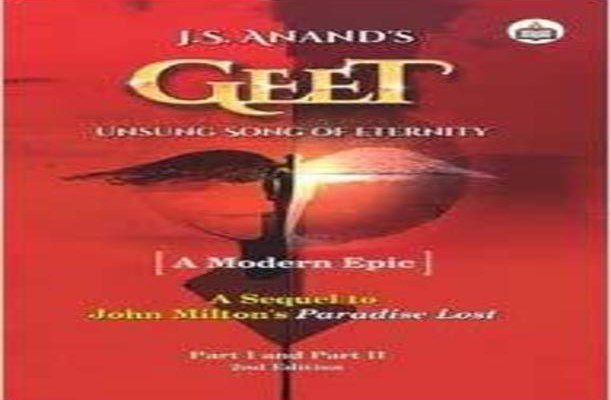Basudeb states that Canto IV and V is an epic discourse on the objectives of their plan. In these two Cantos Anand concludes the climax of the narrative of the grand and cosmic war against God. Satan goes on giving assignment to Faustus one after another. This is the third and final part of the critique, exclusively for Different Truths.
Canto IV shows how Satan anoints Faustus as an embodiment of the evil. Anand here creates a grand atmosphere of an epic poem. All fallen angels of Darkness have assembled in the ‘Temple of Treachery’. They express their solidarity with their great Master Satan. There is a long procession of seven deadly saints (not seven deadly Sins). The irony of this clandestine and unholy meet is remarkably revealed at the beginning of this Canto. First enters Beelzebub who reminds readers of Milton’s Paradise Lost. Modern Man’s devilish coronation ceremony is a cosmic phenomenon in modern times. The contract between Faustus and Satan is executed. After that ceremony it is resolved that the Hell will go to the Earth and will destroy all divine virtues. The Satan says:
You will go to Earth
And ensure that
All those people
Must be plucked out.
Who have got Jobs on merit?
Canto IV and V is an epic discourse on the objectives of their plan. In these two Cantos Anand concludes the climax of the narrative of the grand and cosmic war against God. Satan goes on giving assignment to Faustus one after another. Towards the end of Canto V, Satan gives a clarion call. He tells Faustus:
I want an army
Of unscrupled millions
Ready to march
On the graves of billions.
The scheme of the organised machination against the virtue is complete. This is the climax of this lyrical epic. Canto VI, entitled “The Fall Out”, introduces the character of Chorus who comments on what is going to happen next. Here the chorus explicitly is worried about the future of man in modern times. The introduction of Chorus here is like the introduction of Chorus in Greek tragedy. Chorus foresees the impending future. Satan has already executed a bond with Faustus and Fallen Angels to conclude the destruction of man on the earth. Here there is another character and he is Sage who recalls the past:
The family in the past
Used to be a great institution.
Yes, it was great. …
Anand reveals the importance of glorious family concept of the past. And now he sees the family is going to be disintegrated. Sage further says:
Better kill the child in the womb
Than carry forward
A child
Undesired, ungroomed.
Abortion in modern society is common. Man is free from any guilty consciousness. This is also the modern man’s move into decay and degeneration.
In Canto I of Part 11 the narrator in disguise of Chorus looks back and forward, the past and the present. Chorus says:
When I set out on the journey,
I took along many things,
Religion, faith, colours, signs, etc.
But, Oh I left behind myself.
Canto 1 and 11 of Part 11 is in the conversational form between Chorus and the Sage. Children of a modern man are loveless and parentless. Canto 111 of the second part of this lyrical epic, entitled, “The Sermon on the Mount” is replete with several allegorical characters like Time, Elements Revolt, etc. The appearance of the character of God is important in the context of this epic. Finally God addresses Faustus:
Look at your face Oh Faustus
Look into your eyes
Where is your Grace?
Do you still belong to human race?
With the intervention of God, Man is now in hesitation about what to do and what not. This is the predicament of Modern Man. He is now bound in a healthy relationship. In this Canto the role of Beelzabub is important. He tries his utmost to influence Faustus, an emblem of his modern counterpart to stand firm in his decision. He demands unwavering loyalty from Faustus. Beelzabub tells Faustus that they have done everything for him. Faustus is a symbol of modern Man. Canto IV, entitled “The Parting Advice” is open- ended. A reader can interpret in any way he likes. But one thing is clear that the Divine is all along in the side of Man, advising Man not to be a victim of Satan’s temptation. While reading Geet in this Canto a reader will remember Eliot’s Murder in the Cathedral, particularly Tempters who have tried to insinuate the Arch Bishop of Canterbury. Faustus has become Satan’s prey. Man, in modern times is a replica of Faustus.
The concluding part of this lyrical epic is God’s advice to Man:
Just be.
Live in the trance of creation.
Love the moment of existence
And thank the Creator
For his benedictions.
Avoiding the temptation
To know.
The fruit is still forbidden.

Anand’s Geet is a modern lyrical epic. The form and grand style of traditional Epic of Growth like Homer or the Ramayana and the Epic of Art like Milton’s Paradise Lost or Madusudan Dutta’s Megh Nad Badh Kabya have nothing to do with this lyrical epic, though Anand’s Geet is an Epic of Art. It is unlike Homer or the Ramayana or the Mahabharata. But so far as the epic narrative is concerned, the narratives in all Anand’s poems, often replete with dramatic lyrics, have been the cardinal features of a true epic written in modern times. The grand war within the man himself is cosmic and this war continues since the creation. Satan along with his big army has been presented who from the beginning to the end, try to wreck the creation of the Almighty. Man is his victim. God is also present in this poem. But God towards end of the poem advises Man something only the positive and the beneficial. Everything is left to man. His Karma will decide his Fate. Doors to both the Good and the Bad are open to a modern man. Man in the modern times will have to select the door. Milton’s epic justifies ‘the ways of God to men’; Anand’s Geet justifies man’s way to God. Milton presents God’s way to men while Anand presents man’s way to God.
Work cited:
John Milton Complete Poems and Major Prose, ed. Hughes Y. Merritt (Indiana: The Bobbs- Merrill Company, Inc.), 1980.
(Concluded)
©Basudeb Chakraborti
Photos from the Internet
#Criticism #Poem #Poet #Milton #Geet #DifferentTruths





 By
By
 By
By
 By
By
 By
By